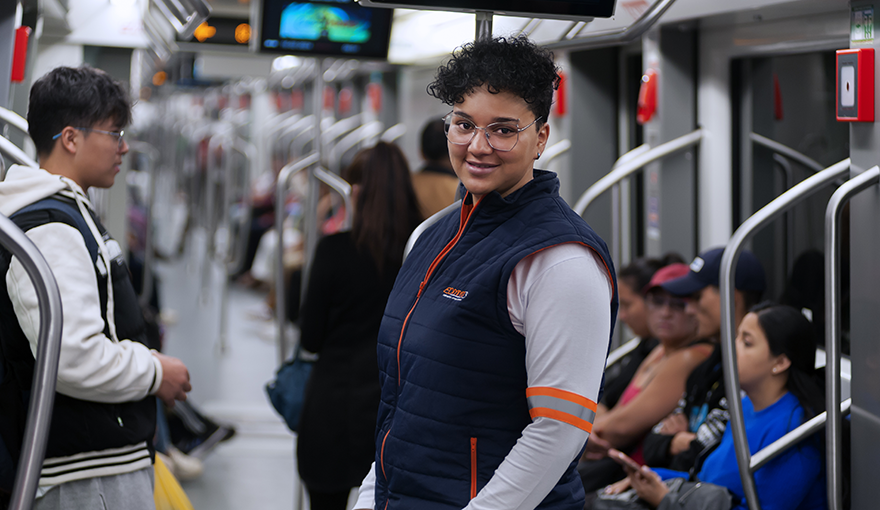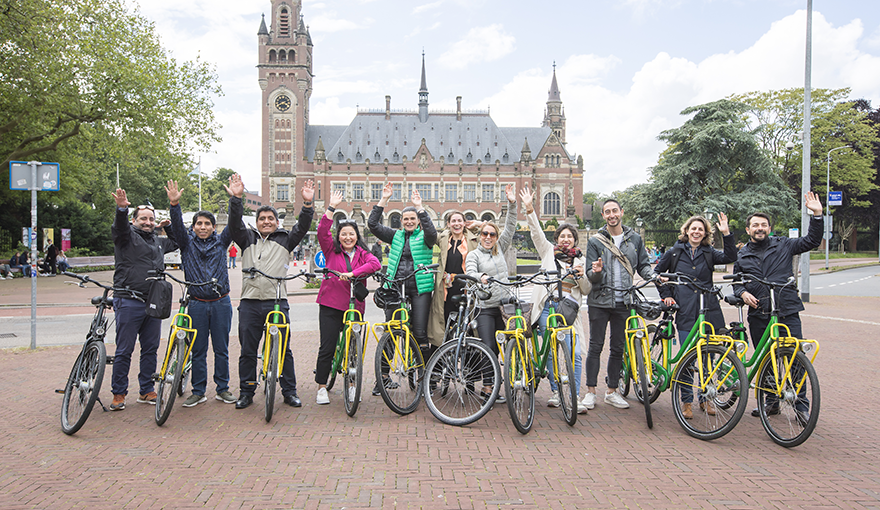KGGTF grants, "Transforming urban transport to support green and resilient recovery - Leaders in Urban Transport Planning (LUTP)" and "Capacity Building for Leaders in Energy Efficient Urban Transport Planning" have set the example for World Bank Transportation and other sectors to follow, becoming a foundational, and the first, course offered in the recently formed World Bank Transport Academy (the Academy).
The Academy, which empowers policymakers and practitioners to tackle complex transport challenges with actionable knowledge, began in the Spring with the LUTP course that delivered lectures from Seoul, in partnership with Korea Transport Institute, and the Hague to participants across 14 countries.
Grant: Capacity Building for Leaders in Energy Efficient Urban Transport Planning
Grant Year: Year 1 (2013)
TTL: Thierry Denis Desclos
Grant: Transforming urban transport to support green and resilient recovery - Leaders in Urban Transport Planning (LUTP)
Grant Year: Year 8 (2020)
TTL: Arturo Ardila Gomez, Lead Transport Economist
A recent World Bank Up Front blog discussed The Academy and LUTP. See a re-post of the blog below.
........................................................

By: Erin Scronce, Senior External Affairs Officer, World Bank
The following story was originally published in The World Bank's Up Front
A persistent cough keeps you up all night. "How did the air here get so polluted?"
The bus is 20 minutes late, again. "Why can't public transport be more predictable?"
A distracted driver swerves into your bike lane, nearly causing an accident. "Why aren't cyclists more of a priority?"
We've all been there at one time or another, and cities everywhere—especially in developing countries—are grappling with how to make urban transport more efficient, predictable, clean, and safe.
"In quickly growing cities around the world, poor transport conditions are having a tremendous impact on the environment, the economy, and people's quality of life," says Nicolas Peltier-Thiberge, World Bank Global Director for Transport. "Fortunately, global experience has shown that change is possible. But developing urban transport systems that work for everyone requires comprehensive expertise and strong leadership. This is exactly what we aim to provide through the World Bank Academy: Leaders in Urban Transport Planning (LUTP)."

New Efforts to Prioritize Knowledge
Knowledge has always been a critical part of the World Bank's work, now and throughout its 80-year history. The Bank's new Knowledge Compact for Action is reinforcing this commitment by transforming the way we generate and share knowledge with our clients, acknowledging that today's complex development challenges call for agile thinking and innovative solutions.
As part of this effort, the World Bank Group has launched an Academy that brings its own experts together with local specialists and practitioners. Its objective? Deliver learning programs that are relevant to the needs of our clients and partners.
"The World Bank Group Academy is part of our effort to reinvigorate the knowledge agenda and seek global engagement on the key development challenges of our time," said World Bank Senior Managing Director Axel van Trotsenburg.
School for Transport
The World Bank Group Academy will offer a wide range of learning opportunities across a variety of sectors. It includes a dedicated Transport Academy that empowers policymakers and practitioners to tackle complex transport challenges with actionable knowledge.
The Transport Academy combines new offerings with existing programs—starting with the Leaders in Urban Transport Planning Course (LUTP), a well-established training that has been in existence for over twelve years. In fact, the two most recent editions of LUTP, which took place in Seoul and the Hague during the spring, were the first courses to be delivered by the World Bank under its new Transport Academy. Combined, the two sessions served 83 participants from 14 countries.
The LUTP program looks at urban mobility in rapidly growing cities, where complex transport challenges call for a holistic and multisectoral approach to planning, governance, management, and operations. LUTP workshops are interactive and designed for candid discussions on what works and what doesn't, using a combination of interactive case studies, small group exercises, and field trips to observe conditions on the ground.
"LUTP emphasizes lasting relationships, knowledge sharing and peer learning. Part of what sets LUTP apart from more traditional training opportunities is the ability to engage in field visits and learn from peers in other countries and cities," explains Nargis Ryskulova, Senior Transport Specialist at the World Bank.
Participants in the LUTP Academy have found the sessions extremely helpful for their work.
"We have to change our paradigm," said Ahmed Javed Qazi. He is the Secretary of the Transport Department for the Government of Punjab in Pakistan and a participant in the May LUTP session. "We have to know our local issues, we have to identify our political will, our regulations, and after that, we have to establish our goals in the short, medium and long term."
Another participant, Santi Prianti, added, "The most valuable thing I get is knowledge sharing and collaborative learning among cities. And I get connections to leaders in urban transport." Santi is the Head for the Section of Public Transport Management in the Bandung Municipality's Transportation Agency in Indonesia.
Looking ahead, LUTP is just the beginning for the Transport Academy.
"The newly created World Bank Academy is an opportunity to build on the success of the LUTP program to expand our offerings," said Binyam Reja, Practice Manager, Transport Global Practice at the World Bank. "We are creating new courses that will help professionals gain 360-degree expertise in transport and empower them to address a wider set of challenges, ranging from road safety to investments."
As a next step, a new course called Leaders in Road Safety Management is currently being developed and is expected to launch in 2025. Two additional programs will become integral components of the World Bank Transport Academy. One will focus on Transport Connectivity, Logistics and Regional Integration, while the other will provide technical training on Core Transport Competencies, covering topics such as state-owned enterprises' creditworthiness, road asset management, investment prioritization, and economic analysis.
"Every time we engage with our clients, the appetite for practical, readily applicable knowledge is evident. We are eager to answer the call and build up our Transport Academy offering over the next few months," said Nicolas Peltier-Thiberge. "Delivering best-in-class knowledge to decisionmakers and practitioners on the ground is one of the best ways for us to amplify the impact of our work and generate lasting results."
LUTP benefits from partnerships. The Seoul session was hosted in partnership with the Korea Transport Institute, the Asian Development Bank, and the Korea Program Operational Knowledge Trust Fund.
